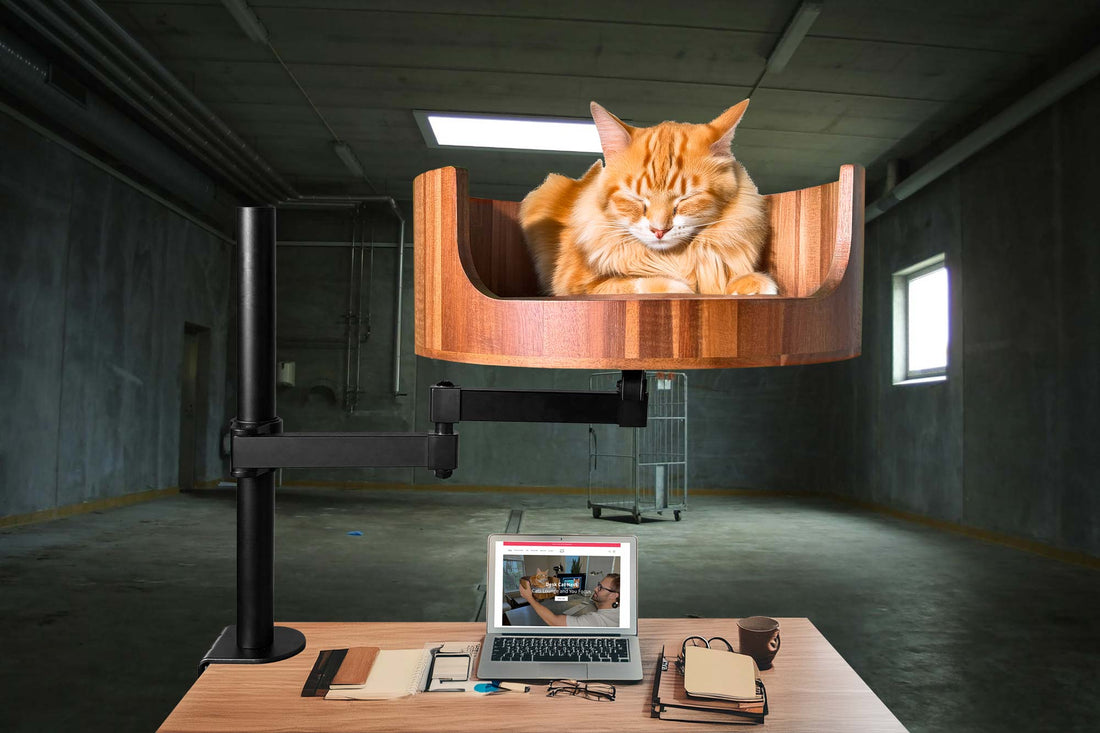
Why Does My Cat Snore? Understanding Feline Snoring
Share
If you have ever noticed your beloved feline friend snoring while they nap, you may be wondering why this common occurrence happens. Cats, like humans, can indeed snore for various reasons, and understanding the causes behind feline snoring can help ensure your furry companion's health and well-being. In this article, we will delve into the reasons why cats snore, the potential health implications, and what you can do to address this adorable yet sometimes concerning habit in your pet.
From the position they sleep in to underlying health issues, there are several factors that can contribute to a cat's snoring. By understanding these factors, cat owners can better monitor and care for their pets to ensure their comfort and health. Additionally, we will explore the various sleep patterns of cats, differentiating between normal snoring and indications of a more serious health concern. With a greater understanding of why cats snore and how to address it, you can provide the best possible care for your feline companion and ensure they continue to purr their way through peaceful slumbers.
1. Cats can snore for various reasons, including obesity, allergies, respiratory issues, and breed predisposition.
2. Snoring in cats can be a sign of an underlying health problem, so it's important to consult a veterinarian for proper diagnosis and treatment.
3. Lifestyle changes, such as weight management and environmental modifications, can help reduce snoring in cats.
4. Breeds with flat faces, like Persians and Himalayans, are more prone to snoring due to their anatomy.
5. Regular veterinary check-ups and monitoring can help identify and address any snoring issues in cats early on.
What Causes Feline Snoring?
Feline snoring can be caused by various factors such as a cold or respiratory infection, obesity, allergies, nasal congestion, or even the shape of your cat's face. Some cats may also snore due to enlarged tonsils or adenoids, or an obstruction in their airway. Understanding the underlying cause of your cat's snoring can help you address the issue effectively and ensure your cat's comfort and well-being.
Health Risks Associated with Feline Snoring
Although occasional snoring in cats may not be a cause for concern, chronic snoring could indicate an underlying health issue that requires attention. Persistent snoring in cats could lead to poor sleep quality, fatigue, and decreased oxygen intake, which can affect their overall health and well-being. It is important to monitor your cat's snoring patterns and seek veterinary advice if you notice any changes or worsening of symptoms.
Managing Feline Snoring
There are several ways to manage feline snoring and improve your cat's breathing and sleep quality. Keeping your cat's environment clean and free of allergens, ensuring they maintain a healthy weight through diet and exercise, and addressing any underlying health issues can help reduce or eliminate snoring in cats. In some cases, your vet may recommend surgical intervention to correct airway obstructions or other structural issues causing snoring in your cat.
Case Study: Treating Feline Snoring
One example of addressing feline snoring is through a case study of a cat named Whiskers who presented with chronic snoring and breathing difficulties. After a thorough examination and diagnostic tests, Whiskers was diagnosed with nasal polyps causing airway obstruction. The vet performed a surgical procedure to remove the polyps, resulting in improved breathing and a reduction in snoring episodes. Whiskers' quality of life significantly improved following the successful treatment of his snoring condition.
Frequently Asked Questions
Why does my cat snore?
Just like humans, cats can snore for a variety of reasons. Common causes of snoring in cats include respiratory issues, obesity, allergies, or even just the position they are sleeping in. If you are concerned about your cat's snoring, it's always best to consult with a veterinarian to rule out any underlying health concerns.
Will the Desk Cat Nest help alleviate my cat's snoring?
While the Desk Cat Nest is designed to provide a cozy and comfortable sleeping space for your cat, it may not directly address the cause of your cat's snoring. However, by providing a comfortable and stress-free environment for your cat to sleep in, the Desk Cat Nest may help improve your cat's overall sleep quality, which could potentially reduce snoring.
Can the Desk Cat Nest accommodate cats of all sizes?
The Desk Cat Nest is designed to accommodate cats of various sizes, with its spacious and durable construction. However, larger or overweight cats may find the nest to be more snug than smaller cats. It's always best to consider your cat's size and weight when selecting a sleeping space for them.
Is the Desk Cat Nest easy to clean?
Yes, the Desk Cat Nest is made with easy-to-clean materials, such as removable and washable cushions or covers. Simply follow the manufacturer's instructions for cleaning and maintenance to keep your cat's sleeping space fresh and hygienic.
How long does it take for cats to adjust to the Desk Cat Nest?
Every cat is different, so the time it takes for them to adjust to a new sleeping space like the Desk Cat Nest can vary. Some cats may take to it immediately, while others may need some time to explore and get comfortable with it. Patience and positive reinforcement can help encourage your cat to use their new sleeping space.
In conclusion, choosing a Desk Cat Bed for your feline friend can greatly help with why does my cat snore. The elevated design of the bed encourages better airflow and reduces the likelihood of your cat experiencing breathing difficulties while sleeping. Additionally, the soft and comfortable materials of the bed provide a cozy and inviting space for your cat to rest peacefully. By investing in a Desk Cat Bed, you not only improve your cat's sleep quality but also promote their overall health and well-being. It's a valuable choice that offers numerous benefits for both you and your beloved pet.



















































